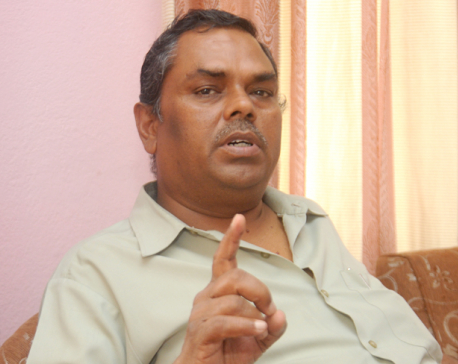
OR

I was of slight build, had squeaky voice, and was sensitive and non-athletic, reasons enough for my classmates to bully me.
As I was clearing the clutter of my room the other day I stumbled across a box of yester-year memories—crayons, toys, books and diaries. Writing diary used to be a popular hobby back then, and many adolescents of my age kept one. My mother had strictly instructed me to maintain a daily diary account. For her it was a means to improve our English writing skills. I browsed through the diary, and smiled amused seeing the neat cursive writing. I came across a poem I had written about my fear of going to school. Anxiety gripped me, as I recalled the motive behind writing the poem. It was a desperate call for help from an unknown force to protect me from the bullies at school.
I was of tiny build, had squeaky voice, was sensitive and non-athletic—reason enough for my classmates to bully me. Jibes and name-calling became part of my school life, and I also mastered the art of staying invisible. The fear of being ridiculed ate away at my self-esteem, and the constant thought of greater harm at the hands of my tormenters haunted me. The teachers failed to see the real reason behind my inefficiency to perform, and my failing grades were attributed to my lack of interest in studies. The teachers also graded me as a poor student. But only I knew that their judgment was poor—they couldn’t see me beyond academics. They never noticed the early signs of my bullying-induced depression.
The resistance towards going to school, my sudden change in behavior, weight loss, poor academic performance, increased absenteeism and constant anxiety towards people didn’t go unnoticed.
The bullying only came to a halt after my mother’s intervention. But the fear of further harm lingered, in turn hindered my socialization skills, and I got further termed as a “weird” person.
Old ghosts
I wondered what would have happened to me had my mother not observed the warning sign and intervened on time? Unable to shake off the feeling, I spoke to one of my school friends, and asked why she never intervened. “Back then, we were all kids, there was no clear right and wrong. I didn’t know what was happening,” she said. But I did not buy her argument.
As a development communicator, I realize the power of peer pressure. The bullying that I suffered would have stopped had there been a collective voice of resistance. But, in a school setting, not many have the courage to protest, as many choose to be spectators, afraid of being bullied themselves. The crux of the problem remains in our schooling—we were always taught to respect others, but never to speak up and collectively defy actions which harm others.
If we were taught to name and shame bullies without fear of negative action, and an assurance of protection in school, I would not have been the victim. I would have made good friends, and greatly cherished my school life.
Ignorant teachers
Sometimes, the gatekeepers of child development, the teachers, are themselves act as bullies. They ridicule students verbally and physically. When their role models in school endorse such behavior, this becomes new normal for students.
Teachers often underplay the impact of bullying, for instance through their misguided offers to mediate. Teachers in my school often told me: “It’s nothing, don’t overreact. Shake hands and become friends.” A handshake and a smile could never compensate for my mental trauma that greatly depleted my self-esteem and confidence. This attitude reflects insensitivity of the teachers. As traditional bullying tactics have undergone a tectonic in cyber space, it is vital to incorporate anti-bullying policies in our education policy.
“We can’t deny that education architecture is purely academic. But physical and mental well-being of a child should be a priority,” said education policy expert, Bhola Prasad Dahal. He further stressed the need to meaningfully implement policies on anti-bullying mentioned in the 1971 Education Act, which was amended for eighth time in 2016.
“The education act safeguards the mental and physical wellbeing of students in school. But we have failed to sensitize teachers on it and schools have become more autocratic. Denial of bullying is high, and children are not provided the channel to voice their concerns, which turns them into silent spectators, and victims,” he further warned.
School is considered a second home for a child, and there is a need to discuss measures to protect children from harm. We need to focus on open and clear communications, mandatory orientation to teachers on bullying and its consequences, besides the schools coming up with strong anti-bullying policies and lessons on empathy and celebrating differences.
If we could do this, many children won’t have to suffer like me. It all starts with acknowledging the fact that bullying exists and it has big impact on a child’s growth and future. To deny bullying is to establish it as a norm rather than a deviant anomaly.
The writer is a development communicator
ayushjoshi4@gmail.com
You May Like This

Impeachment motion against CJ Karki is against independence of judiciary: Yadav
KATHMANDU, May 1: Chairperson of the Federal Socialist Forum, Upendra Yadav has strongly criticized the Nepali Congress and the CPN... Read More...

Khadka secures court order against his dismissal
KATHMANDU, Oct 9: The Supreme Court has issued an interim order against the government's decision to sack controversial managing director... Read More...

New complaint filed at House panel against Sajha GM
KATHMANDU, August 26: When Public Accounts Committee (PAC) of the Parliament has geared up investigation into irregularities of Sajha Prakashan, yet... Read More...







Just In
- NRB to provide collateral-free loans to foreign employment seekers
- NEB to publish Grade 12 results next week
- Body handover begins; Relatives remain dissatisfied with insurance, compensation amount
- NC defers its plan to join Koshi govt
- NRB to review microfinance loan interest rate
- 134 dead in floods and landslides since onset of monsoon this year
- Mahakali Irrigation Project sees only 22 percent physical progress in 18 years
- Singapore now holds world's most powerful passport; Nepal stays at 98th












Leave A Comment